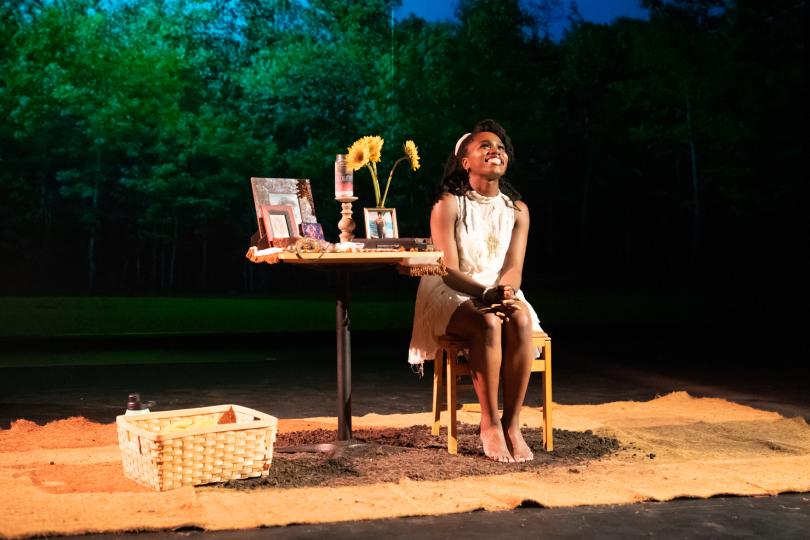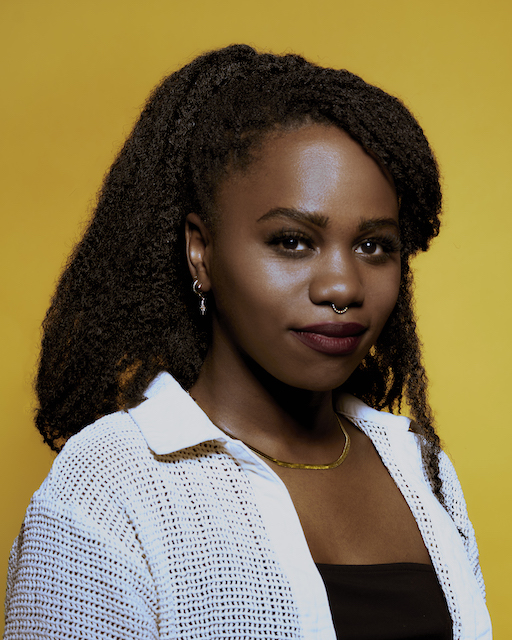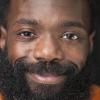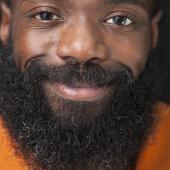What’s going on: an interview with Zola Dee on Creative Discipline

This second discussion in the Creative Discipline series is with Zola Dee, a multi-hyphenated creative. Her new one-woman play On Freeing Fire (Red Eye Theater) concretizes generations of past and present oral histories, while magnifying the theatricality of the relationship between a storyteller and her audience both on and off stage. In the play, the main character races the clock to record and preserve the memories that tether and ultimately frees her soul. I had an opportunity to chat with Zola Dee about her creative process. Our discussion provides a window into the mind of a theater maker with a fresh and fearless voice.
TS In a recent article I define Creative Discipline as the ability to complete a single project from idea to creation to development to production. However, it may also be defined as one’s creative practice e.g. cinematographer, dancer, or sculptor. How would you describe your creative discipline?
ZD My creative discipline, at this point in my life, is in playwriting and performance. However, I think of my creative discipline as being a vessel for the divine. I am constantly finding how I can be that vessel for WHATEVER art wants to come through me. That can be written text, that can be poetry, a dance, a song. I’m just trying to make my practice be one of openness. I believe that the art we are making is greater than us. It is like a spiritual experience. The writer is calling forth new worlds and entities from this unknown space of creativity and actors have to channel these entities. My creative discipline is finding more and more ways to give over to the unknown.
TS What are three things you cannot create without? And why?
ZD Three things I cannot create without are, a good spotify playlist, access to the internet, and access to my phone. Music is at the center of most of my plays so I am usually listening to a song on repeat as I write. A lot of my plays have a historical component so research is important to my work as well. I need to be able to fact check on the internet so having access to it in the writing process is very important. And I need to be able to call my friends that know me best when I’m stuck. They are there to offer me reassurance and also to help me dream up a new scene and get unstuck.
TS Walk me through your creative process? How do you create? Can you identify a routine?
ZD I have no routine. Every play I write comes out differently. I think it always begins with some crazy idea that I fixate on for months until it bursts forward and needs to come onto the page. Other times I’ve devised processes with actors in a room. There is no routine other than inspiration comes and I allow myself to let the piece become what it wants to be. No matter how long that takes.
TS I love how open you are to the work! Where does your inspiration come from?
ZD Inspiration can come from anywhere. A podcast I listened to. A book. An article. A conversation with a friend. I believe the greatest part of being an artist is our ability to fall in love with life, and become so interested in it, that every moment we live is a source for inspiration.
TS When do you know it’s time to abandon a project?
ZD I don’t believe projects get abandoned. Just set aside for the time being. If I invest a lot of time into a project I don’t believe I will abandon it. There are projects I have put away for months or years but I somehow always find my way back to the work. Even if that work takes a different form. I always find my way back. I believe I do this because that piece of art wants to come through me. I’ve fixated on it for long enough and now it wants to be born. Sometimes gestation just takes longer.
“ I think it’s important to keep folks around you who you can dream with.”
TS At what stage in your creative process do you invite collaborators?
ZD It depends on the project. Some collaborators come on to the project at the beginning because I can’t imagine the piece without them and other collaborators will come in much later on. If I can’t envision the piece without a certain collaborator then I try to get them on the project as early as possible, if even just as a brainstorming buddy. I think it’s important to keep folks around you who you can dream with. There are so many folks who, in my heart, are my “collaborators” but they wouldn’t necessarily be listed as that on the playbill. These are my folks who help me dream. They are the folks I call when I am stuck. These are the folks I bounce ideas off of.
TS Yes, your tribe. How important is it for you to finish a project from start to finish?
ZD I believe every project should be “finished.” However, that finishing may not happen for months or years. I have drafts of plays that are not completed that I have stashed away for months only to return to them later once I’ve realized the missing piece. I’ve also taken shorter one acts and then turned them into full length plays years later. I guess for me finished is not the right word, but I believe every project is constantly evolving, even if it’s sitting in a desk-drawer somewhere waiting to be picked up again.
TS What creative obstacles do you face? Personal or professional.
“ I am a firm believer that the only creative obstacle is ourselves.”
ZD I am a firm believer that the only creative obstacle is ourselves. Nothing and no one is standing in our way but ourselves. Once you realize that, all the other external things fall away and you learn how to become a master of your own art making process. One of my favorite books at this moment and time in my life is The Mountain Is You by Brianna Wiest. I believe every artist struggling with a creative obstacle should read it.
TS What tips do you have for creatives who may be facing their own creative challenges?
ZD My tip for creatives who are facing their own creative challenges is to first let them know that whatever they are creating wants to come through them. The art is already manifest inside them. They just need to get out of their own way to bring it into the material world. Now, getting out of one’s own way is different for each person. I usually need to move my body. So if I’m stuck I go for a walk and I let my mind drift. Or I’ll meditate. Whatever you can do to tap into a flow state or a state where the mind is at ease is best.
TS What projects are you currently working on and where can our readers follow and find your work? And/or What projects are you excited about?
ZD I’m working on a lot of projects right now but the one I am most excited about is the one most close to my heart. In 2021 my Aunt passed away from cancer. She was diagnosed in December and was gone by February. When I was rummaging through her things after her passing I found an envelope that said plans for future travel. In that envelope was money from nine different countries. The thing is, my Aunt never left the United States. I don’t know if she had ever really left the South. So, my plan is to go to each of these countries this September and October. I’m going to document my trip and write something about it. Maybe a book. Maybe a play. Who knows. I’m excited to step into the unknown. If you want to follow my journey to these countries and my artist journey you can follow me on instagram at @iamzoladee and join my mailing list on my website which is www.zoladee.com
Zola Dee is a playwright, screenwriter, and performer whose works are deeply invested in exploring Black Americana, African diasporic religions, and imagining freer worlds for the Black collective body. Her most notable work GUNSHOT MEDLEY: Part 1 was Ovation Award recommended and published in Routledge’s Contemporary Plays by Women of Color. Her work has been seen and/or developed with Rogue Machine Theater, Collaborative Artists Bloc, The Playwright’s Center, Hi-Arts, CalArts Center for New Performance, Center Theater Group and the Edinburgh Fringe Festival. Other plays of hers include FATHER, FATHER and Smile, Goddamnit, Smile. She currently works in the performance wing at the Walker Arts Center and is a writing consultant for Meow Wolf. She has also worked for institutions such as The Guthrie Theater and Pasadena Playhouse, The State Theater of California where she worked as the Artistic Associate under Danny Feldman. She is a graduate from California Institute of the Arts with a BFA in Acting and a minor in Creative Writing.





